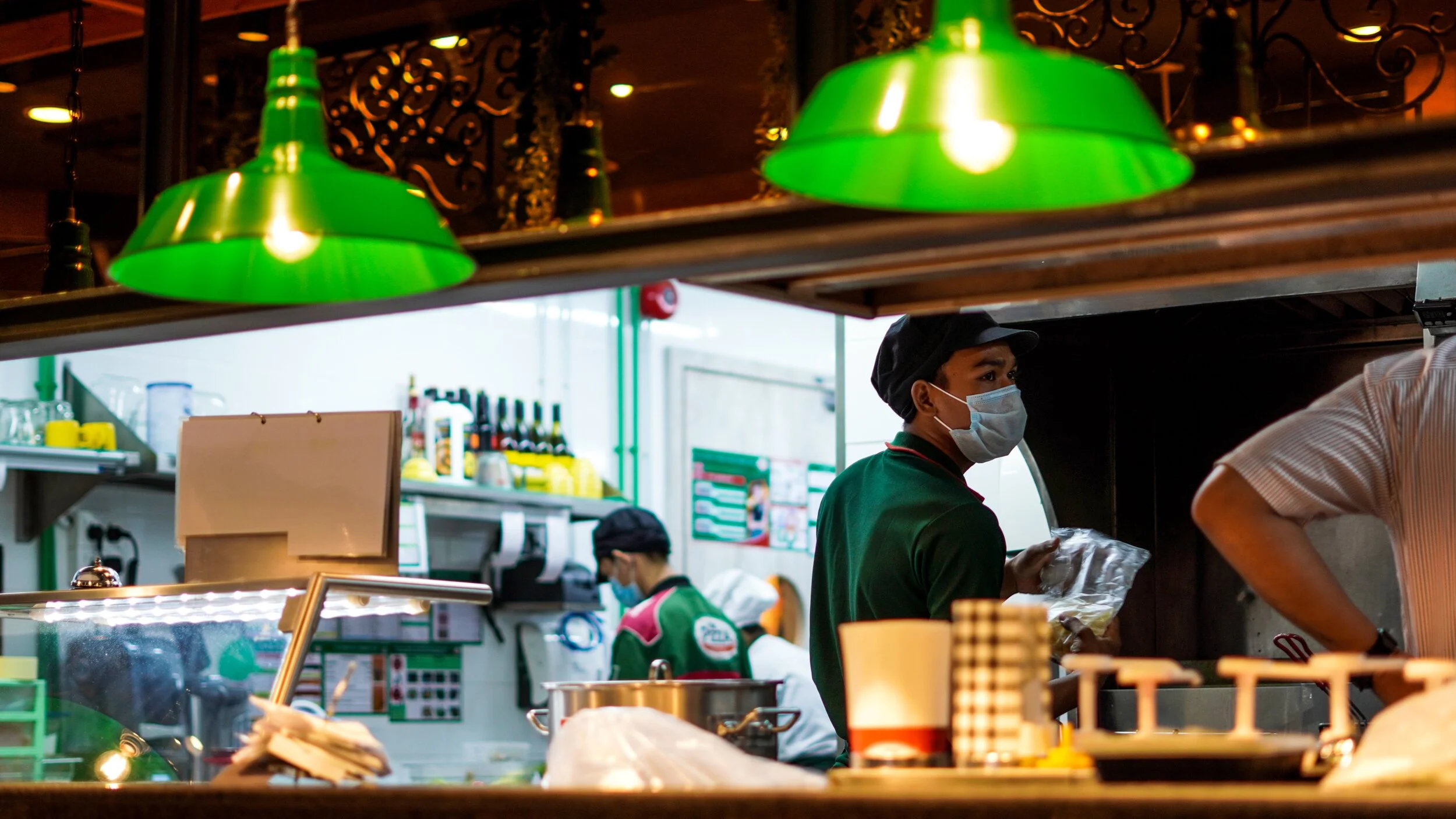Eating outside of the home is a personal decision that includes conscious and subconscious reasoning. For consumers who do not have a compromised immune system, the decision-making process is much easier.
As a new business, you have a reputation for creating. As an established business, you are known for changing or maintaining. When in a business that deals with something as personal as food, you are only allowed one serious strike in your customer's eyes. An error with food could irreparably damage your business.
Commercial kitchen operators are responsible for keeping the public safe from food contamination, which can range in its forms. Habits, equipment, appliances, tools, utensils, chemicals, etc. used in home kitchens are never to be used in a professional setting and vice-versa.
In working with clients that are establishing a new business or expanding internationally, they seek advice on what is the most important element of their business to work on first. The importance and benefits of creating their systems and processes are explained but are typically never followed through because its true value is dismissed.
In the design phase of your business, you must create policies and procedures around your menu, your customers, and according to your local regulatory requirements. One of the most significant and comprehensive of all systems is based on food safety and sanitation.
In the construction and renovation phase of food service, establishment permits won't be approved until important issues directly relating to food safety and sanitation are done correctly.
1. Create a campaign for your staff to understand the importance of food safety and sanitation
As an international food safety instructor, I create a fun learning environment for my participants. In a short period, I have to share much information, so I do it in a manner that presents the information in a fun and accurate way.
Teaching and learning can be done over time to reinforce what is being taught and learned at your business. What you are doing could be a part of your training program and should be documented as proof of training.
The staff becomes the instructor and the trainer
Assign a topic staff from various parts of your business. In a full-service restaurant, have a team member from your bar area, front of the house, back of the house, management team, and for a little extra content, a vendor assigns a topic from their respective areas to teach the rest of the staff. Learning from your peers in an informal setting can produce a better learning environment and reduce the anxiety that may come with formal, rigid training sessions. Encourage staff to ask appropriate questions and not shame them for not knowing an answer.
Turn learning into a game
Act like your restaurant is on a game show, choose a host, and the rest of the staff are contestants. Choose whether you will be on teams or if scores will be assigned to individuals. Choose topics and ask trivia questions that reinforce important issues in the front and back of the house operations. You could let the staff know what the topic will be, in advance, and schedule this activity as a part of your next training session. Rewarding winners and participants that perform well with prizes is a great bonus. Team members that might not do as well should not be shamed, but this is a perfect retraining opportunity to empower them to rise up to your company's standards. Anytime could be a learning opportunity, so use them wisely.
Role-play
People love to say what they would do in a particular situation, but we don't really know what we are going to do until faced with an experience. Preparation is the key to success. Research commonly addressed concerns of customers that patronize your type of business and see how you could improve their customer service experience.
Additional ideas for reinforcing desired behaviors in food safety and sanitation is to assign teams and grade their performance daily, weekly, monthly, or quarterly based on their performance. Then, recognize and/or reward them accordingly. You can also administer impromptu quizzes and provide feedback to your staff about their results. Crossword puzzles could be completed during slow periods when all other work is done, and if customers aren't in your business that requires service. You may also give a visual quiz to spot what's wrong in a picture or identified in a scenario.
This topic in our business is loathed, so let us find fun and interesting ways to approach it while motivating our team members to excel in this important area of business. Reward those who perform to a high standard, just like servers with high ticket sales and top-performing managers. Give your staff a reason to take this seriously beyond because this is a part of their job.
2. Understand the local regulatory requirements for your specific type of business, then exceed them
Pride your company as the type that loves exceeding expectations. We appreciate it when a person or company goes above and beyond what is expected of them, and we tend to rate them and their business more highly. The same should be true with food safety and sanitation. The law is a minimum requirement and varies from the federal, state, and local levels.
A working relationship with your local regulatory authority should be established, and they should be consulted before finalizing plans to ensure that they meet or exceed local requirements. Some cooking methods and special processes, like sous vide, require writing a plan to be submitted for approval before implementation.
3. Promote your company’s food safety and sanitation policies publicly
Customer's awareness of your policies can produce brand loyalty. Proudly announce and share in your business and on your company's website about your commitment to keeping them and their food safe and your premises sanitary.



